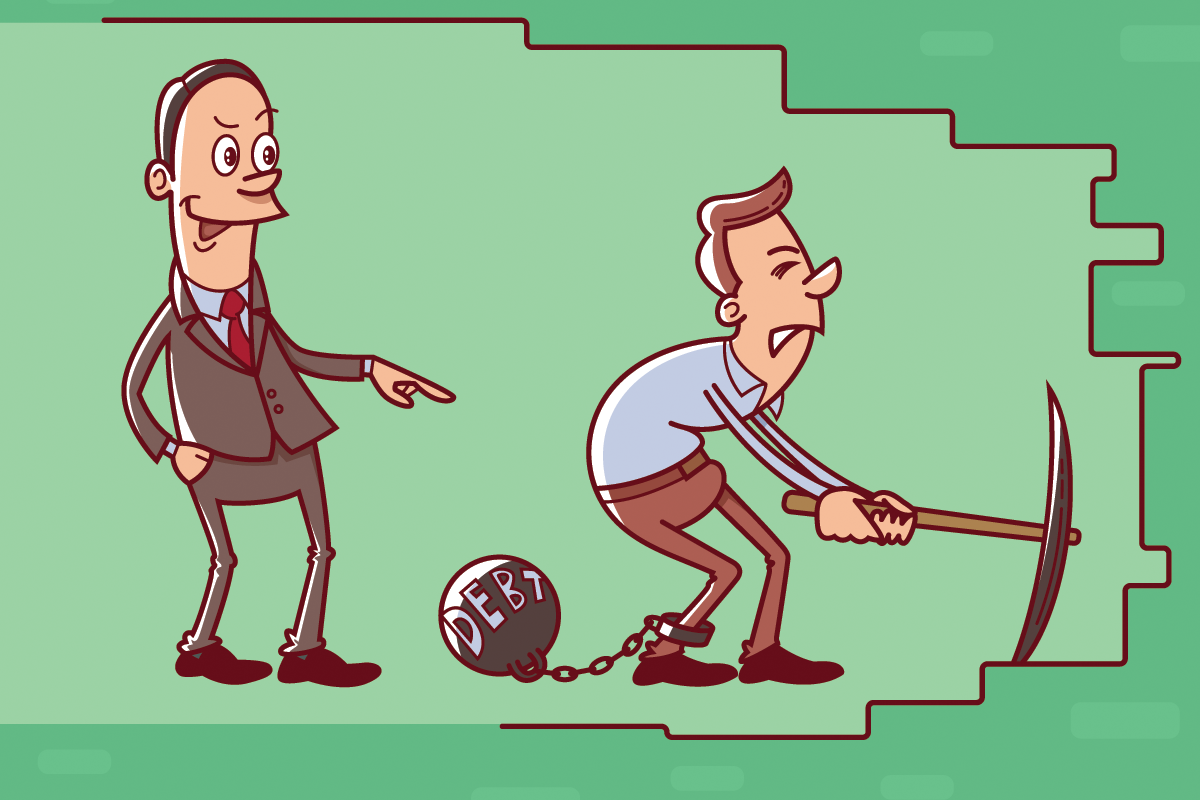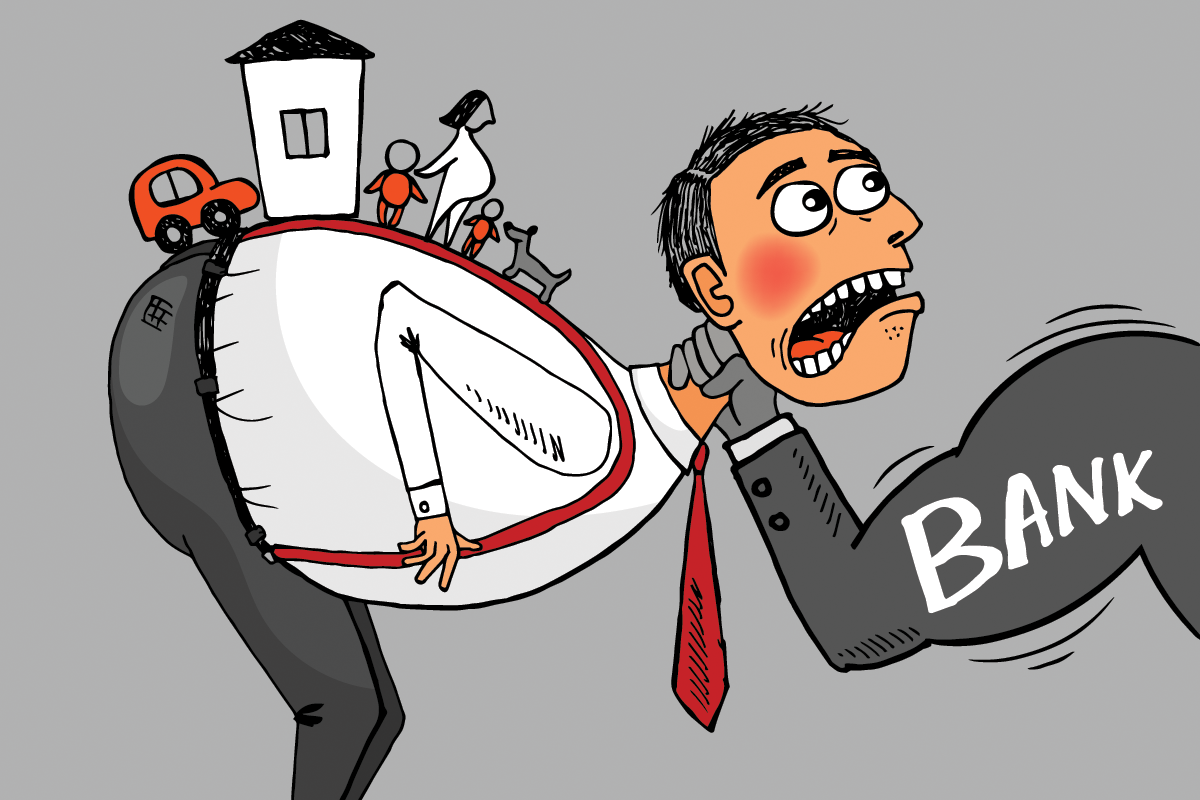The Death Of Every Society

In a recent post, we talked about the idea of time-preference. How it is the meta skill that is behind every other skill. How the lower your time-preference is, the more easily you can delay gratification. The more you can plan your future instead of living day to day. In fact, time-preference may be responsible for the biggest transition in human history, the neolithic revolution.
Hunters To Farmers
Here’s a quick recap. Once upon a time, all humans were hunters. We wandered the landscape looking for food. But then somehow, we transitioned, albeit slowly, into farmers. Hunting is dangerous, and hard. Farming is not dangerous. But why did it take so long?
Farming Takes Planning
If you plant something in the ground, you’ve got to wait a long time for it to grow. This means you’ve got to have a ready supply of food. And you need to protect your farm. Against pests, against the weather, against people who want to steal your stuff. Farming takes a lot of planning, and more importantly, a lot of thinking. A lot of thinking about stuff that might happen. To prepare against potential things that might happen.
Hunting, on the other hand, despite being hard and dangerous, is easy from a thinking point of view. If you are hungry, you go find something and kill it. Boom, dinner time! Hunters never have to think more than a few days ahead of time. They had their never ending hunger to motivate them.
Modern Time-preference
The lower your time-preference, the easier it is to delay gratification. Most success (that doesn’t depend on luck) requires a massive amount of delayed gratification. If you save your money, this means you choose not to spend it. If you want to stay healthy, you need to do things that don’t give you immediate pleasure (jogging, lifting weights, eating carrots) in order to get more health in the future.
Short Term Pain Long Term Gain

This is a simple concept. The more you delay gratification, trade potential pleasure now for much more future pleasure, the better your future will be. Eating carrots every day won’t give you massive pleasure, but you’ll live a lot longer. Getting up at the crack of dawn and exercising is not nearly as enjoyable as sleeping in, but you’ll live a healthier and longer life.
Short Term Pleasure Long Term Pain
The flip side is equally as simple. If you experience nothing but pleasure, your future will be in jeopardy. Living off credit cards, eating fast food every day, sleeping until noon, all of these feel good in the moment, but they add up to a lot of pain, and even early death, later in life.
Natural Humans
Natural humans slowly built up the capacity to think ahead over time. This may have been due to extreme changes in weather conditions (ice ages, etc.). However it happened, ten thousand years or so ago, humans started to plan much more. The invention of agriculture as a food source (instead of hunting) was like a tipping point.
Critical Mass For Technology
There’s an idea in anthropology that a certain size of society is required to maintain a certain level of technology in that society. Below that population size, the technology fades away and is no longer used. If you’ve got a million people, chances are there enough people that know how to handle all the stuff. Sports, religion, plumbing systems, markets, types of currency, different types of agriculture, etc.
But once society gets below a certain threshold (number of people) some of that technology starts to disappear. For example, when European explorers found ancient cities in south America, they were uninhabited and surrounded by overgrowth. Yet there were plenty of indigenous people living around the ruins. Those indigenous peoples had no living memory of the huge and sprawling cities that previously existed. Only myths of what it might have been. The very same people that created the large cities couldn’t keep them thriving once their population fell below a certain threshold.
Above Certain Numbers Technology Keeps Increasing
Above certain populations, however, technology seems to continue to improve. Technology requires a certain number of people who can think creatively. Who can imagine things that don’t exist, and then bring them into existence. This is the only way new technology (things that didn’t exist before) can be created.
Time-Preference Threshold For Continued Society
Just as there needs to be a minimum number of people to keep a certain amount of technology in existence, consider that there needs to be a minimum average level of time-preference to not only keep technology alive, but to keep inventing new technology. Just to make sure, let’s consider two cases.
Million People City – Low Average Time-Preference
Suppose we’ve got a city with a million people, and they have a low average time-preference. This would be equivalent to a high average ability to delay gratification. These people, on average, have a clear idea of the future. They save a certain amount of money. When they consider certain actions, (spending money vs. saving money, eating junk food vs. eating healthy food, resolving issues through negotiation vs. fist fights, etc.) they weigh these actions against a future days or even weeks in the future.
It’s easy to see how a city filled with low-time-preference people would continue to be creative, to invent new things, come up with new ways of doing business, etc. This city would continue to thrive, and make good use of its natural resources.
Million People City – High Average Time-Preference

Now suppose we’ve got a city with people that have a high average time-preference. This would be equivalent to having a very low ability to delay gratification. When choosing behaviors, they tend to choose behaviors that satisfy them now rather than later. They spend their money now, they eat to please themselves now, and they give in to short term emotions (anger, fear, hysteria) much more readily. It’s not hard to see how a city filled with these types of people would have a very hard time continuing to come up with new inventions.
Inventions are made to come up with new and creative ways of solving problems. People that can only focus on the next day or two are generally not creative. They can’t take the time, don’t have the patience, to contemplate various solutions that might solve the issues at hand.
Time-Preference Threshold
We can imagine some level within society where above that level of average time-preference, technology would continue to move forward. And below that level of time-preference, technology would stop moving forward, due to the lack of creativity and imagination within the population.
For example, imagine a society where everything was going smoothly, people were saving money, living healthy, inventing new things, and then a meteor shower hit and absolutely destroyed their ability to delay gratification.
The new time-preference was so high, that people couldn’t imagine going to work unless they got paid every day. They didn’t see the point of having money in the bank that could otherwise be spent on wonderful things like junk food, alcohol, and lap dances. Nobody saw the point of cooking if they could buy ready-made meals at the supermarket.
If this happened to everybody in society, all at once, it’s easy to see that pretty soon, the entire society would collapse. Nobody would go to work and produce needed things like electricity. Nobody would take the time to study and learn anything unless the learning was instant. Soon the entire society would be in shambles.
Before long the food at the supermarket shelves would vanish, as nobody would be willing to go to work (work is not pleasurable so nobody does it in exchange for a paycheck once every two weeks). The gas stations would run out of gas and not be refilled. The electricity would soon stop, as nobody would want to go work at the electrical plant.
Varying Levels Of Time-Preference

Of course, average means that some people have high time-preference and some people have low time-preference. With a society large enough (and we pretty much live in a huge, interconnected global society) a small percent of people with a low enough time-preference can keep things running along.
Uneven Time-Preference Distributions
If something is evenly distributed, you’d have a nice looking bell curve. With regards to time-preference, you’d have a bunch of people with the average time-preference in the middle. A few people would have lower time-preference, and a few people would have higher time-preference. So long as the average stayed the same, or increased, everything would be fine. If the average time-preference started to go down, would that necessarily be a problem?
Lots Of Immeasurable Variables
In every society, there needs to be a certain amount of productivity. In the U.S., for example, there’s about 350 million people. This many people need a certain amount of stuff per day. What stuff? That’s one of the many variables that’s kind of hard to measure. Electricity, food, heat, entertainment, gas, shoes, etc.
The amount people that produce the amount of stuff these people need will vary based on the technology. Advancing robotics, for example, will make it easier to far fewer people to continually produce things for the majority.
Time-Preference And Wealth

It’s not a leap to say that in general, lower time-preference would lead to a greater accumulation of wealth. Low time-preference is the ability to plan ahead, and strategize better. Higher time-preference means to only be able to think of present and pressing needs. High and low time-preference are only related to thinking, planning and strategizing skills, not necessarily moral or ethical character. It’s entirely possible to have strong morals and very high time-preference, and low morals and very low time-preference.
If Time-Preference Was Adjustable
If one could adjust time-preference, both in themselves and in others, how would this likely happen? If one had very high time-preference, they would not be able to do this. Since high-time-preference people would be only able to focus on immediate and pressing needs, the idea of consciously lowering their own time-preference wouldn’t be likely.
But what about people with low time-preference? What would they do? They would likely realize that they lower their own time-preference, the more wealth they would accumulate. Would they have any desire or inclination to lower or raise the time-preference in others?
Nobody Likes Competition
One idea that is common in all businesses is the idea that competition is avoided at all costs. When starting a business of any kind, finding a niche with little to no competition is most desirable. As businesses gets larger and larger, they tend to take great measures to outsell the competition any way they can.
It makes sense that those with very low time-preference would like to keep the “low time-preference club” as small as they possibly could. After all, if they have a large group of people with very low time-preference, these others would be competing for their power and wealth.
Would Low Time-Preference People Purposely Increase The Time-Preference Of Others?

Consider that they very well might. If a small group of people (with very low time-preference) are in charge of a very large group of people, they (the high time-preference people) would be much easier to control if their time-preference was higher, all else equal.
Low Enough To Maintain Production
Too high and nobody would do anything, and society would stop functioning. But too low, and the masses would start to recognize that the elites (the wealthy few with very low time-preference) are taking advantage of them, and they would become too difficult to control.
The History Of Failed Societies
It’s worth noting that every society since the dawn of the agricultural revolution has failed at some point. The same people live in the same areas, before and after these failures, but the economic and government systems tend to always break down. Revolutions, civil unrests, coups, all are ways that the established order ceases to work.
Time-Preference Juggling Act
It could be that the elites never really have much control over the average time-preference of those they are controlling. It may work for a while, but soon something falls out of equilibrium, and either production ceases, due to too high an average time-preference, or sufficient people with sufficiently low time-preference decide to take matters into their own hands.
Time-Preference As Self-Sustaining Cycles

If you have very low time-preference, one way this manifests is in saving money. The more you build wealth, the more you can build wealth. This implies that those with naturally low time-preference tend to do things that decrease their time-preference even more.
On the other hand, those with high time-preference are not likely to save money. This means the less money they have, the more they are forced to only consider the most current and pressing needs. This would tend to lower their time-preference even more, especially once they start living off debt in addition to whatever income they earn.
Personal Debt As A Time-Preference Tipping Point
Consider two people. One lives only on cash, and saves money every month. Another person has to spend off his credit cards every month just to survive. The person who lives only on cash, and saves money every month, will see his savings grow every month. This will serve to decrease his time-preference even more. The more savings his has, the more he can think about how to use those savings in the future, which will inspire him to save even more.
The dept dependent person, on the other hand, will get deeper and deeper into debt each month, which will make their current and pressing needs even more dire. This will tend to increase his time-preference each and every month.
Debtors and Creditors

We may go so far as to say that those in control, those with very low time-preference, are the creditors of society. And those who are controlled, those who find themselves into a self-sustaining cycle of higher and higher time-preference, are the debtors of society.
Are Creditors Purposely Encouraging Debtors To Go Into Further Debt?
It may be the case. The more creditors lend to debtors, the more the creditors will be in control of the debtors. One because the creditors, as a low time-preference group, are more and more “separate” from the high time-preference masses. But more importantly in that the more the debtors go into debt, a higher proportion of their labor is spent paying interest on the debt, which goes directly to the creditors.
Debtless Society To Debtors and Creditors
Imagine a society that starts out with zero debt. Nobody owes anybody anything. Then after a few decades or even centuries, one small class (the creditors) are making money simply by collecting interest from the large debtor class. As the years go by, more and more of the total labor (as a percentage) is paid to the creditors.
Too Much Debt Has Always Crashed Society

Consider this may be the natural course of human societies. All societies must start at some point, when nobody owes anybody any money. Then a small group (the low time-preference people) seem to be able to tilt the lending and financial laws in their favor. Soon people borrow money, and they (the debtor class) pay a portion of their income to the creditor class.
This continues until the debtor class becomes too indebted to even be productive, and the whole system comes crashing down. Then it starts over, and the new society goes through a few hundred years until the whole thing breaks again.
What To Do?
As this seems to be a continuous cycle of human history as far as we have records, it will likely continue. Our current society seems to be near the breaking point. Debt is at an all time high, both personal (credit cards, mortgages, etc.) and public (government debt). Not much any of us can do to change the big picture, but we can do things to improve our own situation.
Decrease And Eliminate Debt

Of course, for many of us, this is much easier said than done. But consider this the singular most important thing you can strive for. Even if you pay down your debt by ten bucks a month, this will slowly decrease your time-preference. Consider paying down debt and decreasing time-preference as two sides of the same coin.
The lower your time-preference, the more of the future you will be able to anticipate and plan for. The worst possible thing is to only be able to plan for and imagine a couple of days or weeks ahead. This puts you at great risk to unexpected changes. The more you lower your time-preference, the less at risk you’ll become.
More About Time-Preference
Learn More

Mind Persuasion has plenty of books and courses all designed to help you get much more out of life.
Mind Persuasion Books
Mind Persuasion Courses